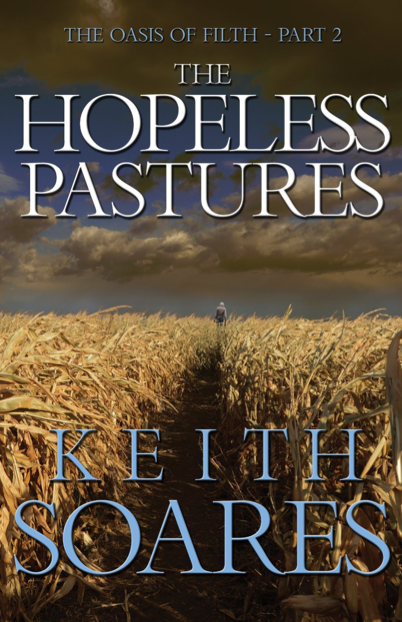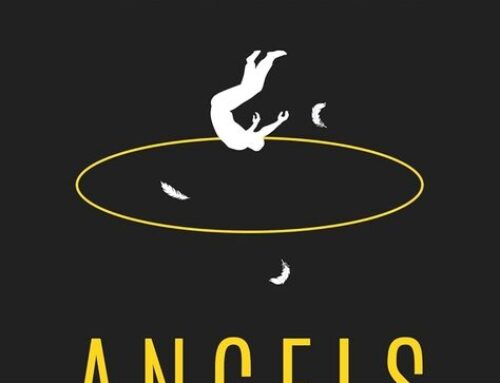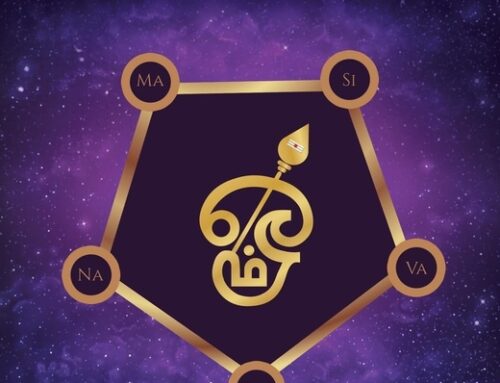 A sequel to the uncommon zombie apocalypse short story The Oasis of Filth, The Hopeless Pastures by Keith Soares is a second part of a trilogy set in a United States no longer “united”.
A sequel to the uncommon zombie apocalypse short story The Oasis of Filth, The Hopeless Pastures by Keith Soares is a second part of a trilogy set in a United States no longer “united”.
As the mysterious plague RL2013 pushes humanity to the brink of extinction, where governments ensconce and bury the remaining citizens in distant walled cities. No phone lines, no internet, no questions, no disobedience, the world is painted as a fearful and empty place outside of the clinically-white walls of each city, as modern-day lepers nicknamed “zombies” emerge from places decried as “dirty”, and people are shut into hopeless routines. Our view into this latent and undying near-future is provided in the memoirs of a doctor, former resident of a walled city, on the whole content with his day-to-day life until the tale of an escape in the form of an “Oasis” starts becoming more than a fairy story as one of his few remaining acquaintances is chased down by the government.
Set after his escape, and the loss of his only remaining human interest and seeming final hope, the doctor has now fled to Maryland to live alone and free of his disturbed and bleak past, until once again his faith is stoked by another refugee from the walled cities, Alain, and kept company by a forgotten dog, Addy. Meeting at a crossroads of their lives, they pause to discuss the nature of this world, of humanity, and together they slowly begin to believe in better, in each other, with talks of cures and salvation running beyond idle chatter.
While a book about outcasts banding together may seem as overdone a trope as zombie fiction itself, once again I have to assure anyone reading this that the author, Keith Soares, is in all ways a step above those expectations in his ideas and his execution. A short read at around 120 pages the book is paced excellently in rounded, digestible chapters that are well distinguished from each other, and the quiet, reverent tone that encapsulates the majority of the story doesn’t outlive itself to become dreary. The tired but never bitter doctor is an intricate character described in few words and many actions, always believable without being boring, and even more impressive the same can be said about most of the other characters. Cast Away managed it with a volleyball, The Life of Pi with a tiger; in no way do a few humans – give or take – seem too little. Almost every word is well chosen, and every scene regardless of whether someone dies or sits alone in a broken-down RV, is effective and engaging, never without a point. The theme has shifted from a more rebellious adventure against The Man, to a more introspective account of loss and renewal; a “Two Towers” leading to “The Return of the King”. Flickers of a final resurgence can be felt growing all through the second half of the book, and while it doesn’t quite lead anywhere, it does leave me on edge to read a continuation without the disappointment of a cheap cliffhanger.
I don’t recommend reading this book; I recommend reading every book this author publishes, as I have no doubt he will continue raising the bar in the third part of this short series and in any new work he may continue on to. This series is a craft of someone who has not been afraid to keep their ideas on a slow boil until they were ready to throw themselves into writing it exactly as it needed to be, and it glistens with the mark of a skilled storyteller. If this isn’t a high enough recommendation for you to pick this book up yourself then I’m not sure what is.
Whether a happy ending is truly in the works or not is completely in question, and once again the book’s ending is left reasonably unresolved keeping the reader hungry for more. I have no doubts that the final installment will be an interesting one.
Review Overview
Design
Editing
Content
Get an Editorial Review | Get Amazon Sales & Reviews | Get Edited | Publish Your Book | Enter the SPR Book Awards | Other Marketing Services






















Leave A Comment